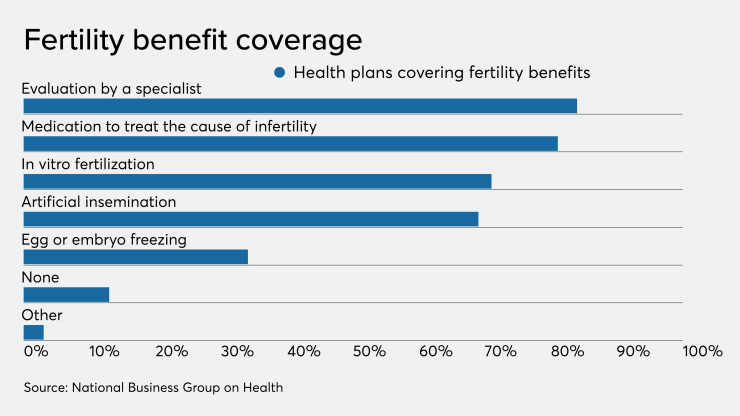With millions of Americans working from home, open enrollment will look very different this year, since most activities moved online. However, it’s not just open enrollment that’s changed. Employees themselves have changed, and the benefits that were relevant just months ago no longer hold the same weight.
In the world of fertility and family-forming benefits, we’ve seen five trends emerge that not only make open enrollment different in 2020, they will transform how companies think about their benefits programs for years to come.
Programs that support workplace equity are imperative. Many employers already prioritize programs that support diversity, equity, and inclusion , but this year, DE&I programs have taken on a new urgency. Companies are seeking out programs designed to remove healthcare barriers and support Black, Indigenous, and People of Color employees and other underrepresented groups on their path to parenthood. We’ve also seen a growing interest in educating the transgender community, which has been underserved and underrepresented at work, about transgender-inclusive programs. Finally, employers are shining a light on adoption and surrogacy to highlight their fertility and family-forming benefits are equally accessible to all employees including single and LGBTQ+ people who don’t meet criteria for an infertility diagnosis required by traditional insurance products.
Cost savings must be clear and measurable. In recent years we’ve seen the mindset around fertility and family-forming benefits evolve from a nice-to-have perk to a standard workplace benefit. The pandemic put a spotlight on fertility care as an essential part of healthcare, but it also highlighted the need for clear, measurable cost savings due to constricted budgets. In 2021, employers will require greater transparency and predictable cost controls around medical claims and clear reporting on dollars saved, in addition to reporting around metrics on recruiting and retention.
Holistic, custom programs are the future of employee benefits. Bigger salaries, bonuses, and office perks are no longer enough. Employees want and need something that can help them with life outside the office. The pandemic highlighted the need for workplace benefits packages to include emotional and mental support as part of healthcare. At Carrot, we’ve seen an increase in mental health telehealth appointments by seven times the previous rate, a statistic that spiked in the early days of COVID-19 and has held steady since. Similarly, while Covid-19 temporarily suspended fertility treatments for a period of time, it didn’t stop the desire to pursue parenthood. In July, Carrot saw benefits activity surpass pre-pandemic levels.
Benefits parity for global teams is essential. In addition to navigating the biggest health crisis of our time, employers are faced with building and maintaining a strong corporate culture with decentralized teams. Fertility-care can help foster an inclusive culture among remote teams since it supports all pursuits of parenthood. However, in order to be truly inclusive it must be available to everyone. Benefits leaders have made it clear, in 2021 they need to offer the same level of benefits to every employee no matter where they are located from New York to Singapore.
The rise of the employee advocate.One of the most exciting trends of 2020 is the rise of employee empowerment. Only a few years ago, fertility-care and family-forming were considered too personal to be spoken about at work. Certainly no one would dream about asking about fertility benefits in an interview or bringing it up to HR. Things look very different in 2020. Employee Resource Groups, representing LGBTQ+, women, parents, and allies, are engaging in a dialogue on the benefits programs that matter to them most. Employees are sharing their personal fertility journeys with one another, actively engaging with company leaders about what was once a taboo topic, and helping others to maximize their benefits.
2020 has challenged benefits leaders in an unprecedented way, but it also brought with it some invaluable lessons. Looking ahead, employers are doubling down on benefits programs that support their employees holistically, foster a strong company culture, boost productivity, and mitigate costs. Fertility and family-forming benefits accomplish all of the above and give employees a benefit they truly value and that will positively impact their lives for years to come.






